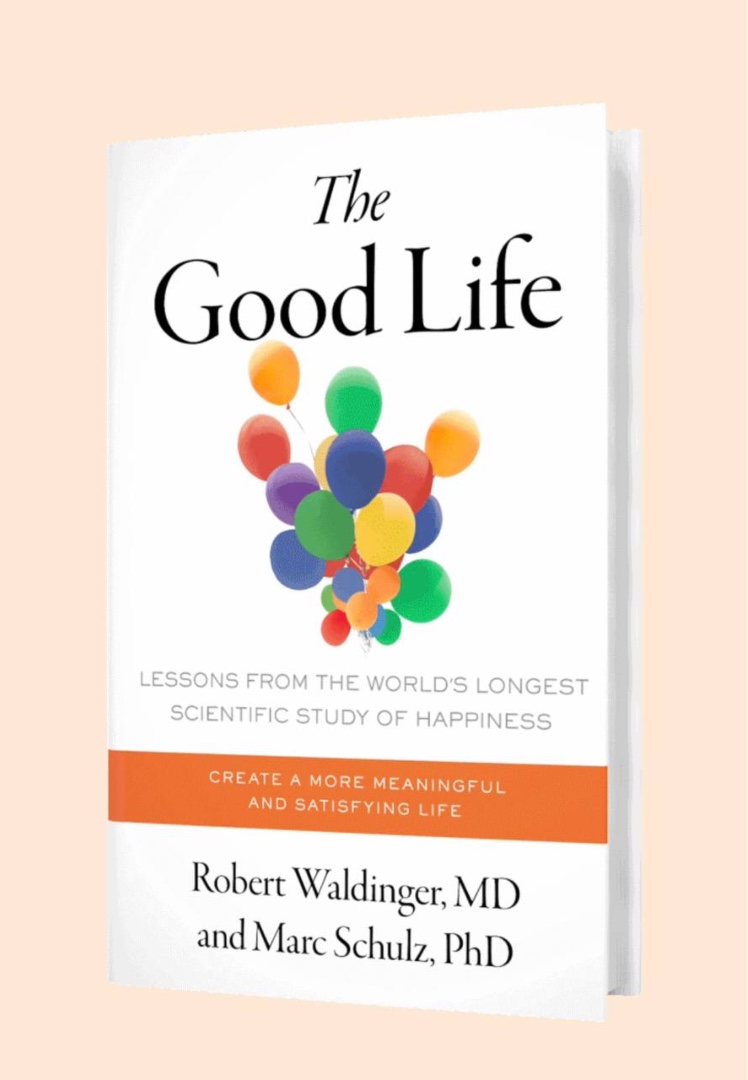In his TED talk, Harvard clinical professor Robert Waldinger shares the three biggest lessons to a good life through the longest study on happiness.
Psychiatrist, psychoanalyst, and Zen priest, Robert Waldinger is the fourth director of The Harvard Study of Adult Development, which may be the longest study of adult life that’s ever been done.
According to Waldinger in his TED talk, “For 75 years, we’ve tracked the lives of 724 men, year after year, asking about their work, their home lives, their health, and of course asking all along the way without knowing how their life stories were going to turn out.”
He continues, “Studies like this are exceedingly rare. Almost all projects of this kind fall apart within a decade because too many people drop out of the study, or funding for the research dries up, or the researchers get distracted, or they die, and nobody moves the ball further down the field. But through a combination of luck and the persistence of several generations of researchers, this study has survived. About 60 of our original 724 men are still alive, still participating in the study, most of them in their 90s. And we are now beginning to study the more than 2,000 children of these men.”
READ ALSO: Building Strength And Power: Oprah’s ‘What Happened To You’ Sells One Million Copies

Furthermore, he shares, “The founders of this study would never in their wildest dreams have imagined that I would be standing here today, 75 years later, telling you that the study still continues. Every two years, our patient and dedicated research staff calls up our men and asks them if we can send them yet one more set of questions about their lives.”
And what have they learned from the study? Here are the three biggest lessons about the impact of our relationships on our health and wellbeing:
Lesson One: Social Connections Matter
Waldinger states, “The first is that social connections are really good for us, and that loneliness kills. It turns out that people who are more socially connected to family, to friends, to community, are happier, they’re physically healthier, and they live longer than people who are less well connected. And the experience of loneliness turns out to be toxic. People who are more isolated than they want to be from others find that they are less happy,their health declines earlier in midlife, their brain functioning declines sooner and they live shorter lives than people who are not lonely. And the sad fact is that at any given time, more than one in five Americans will report that they’re lonely.”
Lesson Two: Quality vs. Quantity
“And we know that you can be lonely in a crowd and you can be lonely in a marriage, so the second big lesson that we learned is that it’s not just the number of friends you have, and it’s not whether or not you’re in a committed relationship, but it’s the quality of your close relationships that matters. It turns out that living in the midst of conflict is really bad for our health.High-conflict marriages, for example, without much affection, turn out to be very bad for our health, perhaps worse than getting divorced. And living in the midst of good, warm relationships is protective,” Waldinger reveals.
He elaborates further, “Once we had followed our men all the way into their 80s, we wanted to look back at them at midlife and to see if we could predict who was going to grow into a happy, healthy octogenarian and who wasn’t. And when we gathered together everything we knew about them at age 50, it wasn’t their middle age cholesterol levels that predicted how they were going to grow old.It was how satisfied they were in their relationships.The people who were the most satisfied in their relationships at age 50 were the healthiest at age 80.And good, close relationships seem to buffer us from some of the slings and arrows of getting old. Our most happily partnered men and women reported, in their 80s, that on the days when they had more physical pain, their mood stayed just as happy. But the people who were in unhappy relationships, on the days when they reported more physical pain, it was magnified by more emotional pain.”
Lesson Three: Good relationships protect our brain
Waldinger says, “And the third big lesson that we learned about relationships and our health is that good relationships don’t just protect our bodies, they protect our brains. It turns out that being in a securely attached relationship to another person in your 80s is protective, that the people who are in relationships where they really feel they can count on the other person in times of need,those people’s memories stay sharper longer. And the people in relationships where they feel they really can’t count on the other one, those are the people who experience earlier memory decline. And those good relationships, they don’t have to be smooth all the time.Some of our octogenarian couples could bicker with each other day in and day out, but as long as they felt that they could really count on the other when the going got tough, those arguments didn’t take a toll on their memories.”
Waldinger announced in his website that his book, The Good Life will be available by next year: “I am excited to bring our research findings to the public in our new book, The Good Life, which will be available to audiences on January 10, 2023.” You can pre-order the book here.

According to Waldinger’s profile on TED: Robert Waldinger is a psychiatrist, psychoanalyst and Zen priest. He is Clinical Professor of Psychiatry at Harvard Medical School and directs the Harvard Study of Adult Development, one of the longest-running studies of adult life ever done. The Study tracked the lives of two groups of men for over 75 years, and it now follows their Baby Boomer children to understand how childhood experience reaches across decades to affect health and wellbeing in middle age. He writes about what science and Zen can teach us about healthy human development.Dr. Waldinger is the author of numerous scientific papers as well as two books. He teaches medical students and psychiatry residents at Massachusetts General Hospital in Boston, and he is a Senior Dharma Teacher in Boundless Way Zen. To keep abreast of research findings, insights and more, visit robertwaldinger.com.
Photos via Waldinger’s website at robertwaldinger.com.





